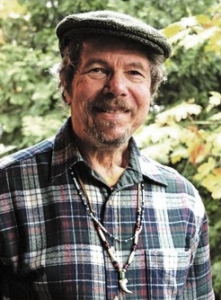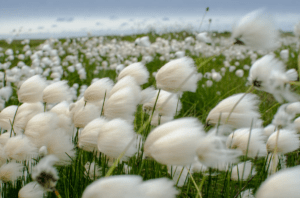 As a poetic goal Peter Ludwin states, “I wanted to be contemporary, but with a sense of music.” Key influences on this journey were poets Theodore Roethke, Rainer Maria Rilke, Dylan Thomas, James Dickey, Federico Garcΐa Lorca, Mark Doty, Joseph Stroud and Robert Wrigley. He has also been influenced by history, travel and foreign cultures, the West, his musical background, a spiritual view of the natural world, nuggets of personal experience and the character of English itself, its rhythmic punch from words of one or two syllables. From Spanish language poets Lorca and Pablo Neruda, and Robert Bly’s crucial essay, “A Wrong Turning in American Poetry,” he’s been inspired at times to get off the ground with “leaping” images that dive below surface consciousness to reveal startling inner realities—an approach that informs a number of poems in A Guest in All Your Houses and Rumors of Fallible Gods. As Ludwin writes, such images “tend to make emotional sense rather than sequential rational sense. There is more than one way to ‘understand’ a poem.” Later books Gone to Gold Mountain and An Altar of Tides are more straightforward, yet each of his books is stylistically somewhat different from the others. “I like to use the physical world as a jumping off point for interior exploration,” he says, “whether aesthetic, ethical or spiritual.”
As a poetic goal Peter Ludwin states, “I wanted to be contemporary, but with a sense of music.” Key influences on this journey were poets Theodore Roethke, Rainer Maria Rilke, Dylan Thomas, James Dickey, Federico Garcΐa Lorca, Mark Doty, Joseph Stroud and Robert Wrigley. He has also been influenced by history, travel and foreign cultures, the West, his musical background, a spiritual view of the natural world, nuggets of personal experience and the character of English itself, its rhythmic punch from words of one or two syllables. From Spanish language poets Lorca and Pablo Neruda, and Robert Bly’s crucial essay, “A Wrong Turning in American Poetry,” he’s been inspired at times to get off the ground with “leaping” images that dive below surface consciousness to reveal startling inner realities—an approach that informs a number of poems in A Guest in All Your Houses and Rumors of Fallible Gods. As Ludwin writes, such images “tend to make emotional sense rather than sequential rational sense. There is more than one way to ‘understand’ a poem.” Later books Gone to Gold Mountain and An Altar of Tides are more straightforward, yet each of his books is stylistically somewhat different from the others. “I like to use the physical world as a jumping off point for interior exploration,” he says, “whether aesthetic, ethical or spiritual.”
Ludwin is the recipient of a Literary Fellowship from Artist Trust and the W.D Snodgrass Award for Endeavor and Excellence in Poetry. His first book, A Guest in All Your Houses, was published in 2009 by Word Walker Press. Rumors of Fallible Gods, a two-time finalist for the Gival Press Poetry Award, followed in 2013 from Presa Press. His third book, Gone to Gold Mountain, was published in 2016 by MoonPath Press. Nominated by MoonPath for a Washington State Book Award, it was also nominated by the Before Columbus Foundation for an American Book Award.
Ludwin was a fourteen-year participant in the San Miguel Poetry Week in storied San Miguel de Allende, Mexico, an experience so enriching he refers to it as “my MFA.” There he studied under Doty, Stroud, Wrigley, Tony Hoagland and many others, during which time he won The Comstock Review’s 2016 Muriel Craft Bailey Memorial Award for his poem “Wolf Concerto.” That year he was also the Second-Place winner of the Paulann Petersen Poetry Award, and a finalist for both the Tucson Festival of Books Literary Awards and the Pangaea Poetry Prize. A multiple Pushcart Prize nominee, he’s received nominations from MoonPath Press and Connecticut River Review.

His work has appeared in many journals, including Atlanta Review, The Bitter Oleander, The Comstock Review, Crab Orchard Review, Nimrod, North American Review, Prairie Schooner and Weber: The Contemporary West, to name a few. A world traveler who has journeyed by canoe to visit remote Indian families in the Amazon Basin of Ecuador, hiked in the Peruvian Andes, thumbed for rides in Greece, bargained for goods in the markets of Marrakech and Istanbul and survived debilitating illness in China and Tibet, Ludwin lives in Kent, Washington, where he has worked both for the local Parks Department and in a greenhouse for a nonprofit that helps immigrant farmers grow organic food for themselves and the community.
His most recent manuscript, An Altar of Tides, was a finalist for the Wandering Aengus Press Book Award in 2020, 2021 and 2022 under its previous title, Medicine Crow. Winner of the Trail to Table Editors’ Award in Poetry, it was published by Trail to Table Books, an environmentally themed imprint of Wandering Aengus, in October 2024.